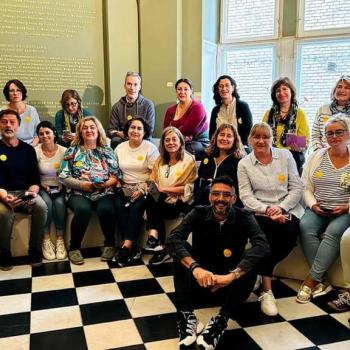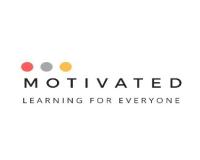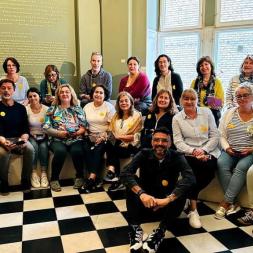
“Inclusive Education in the Classroom: Using Drama for Students with Special Needs”
Drama is a technique that helps students to develop social skills in a fun, stimulating environment.Drama is about collaboration,when it is used in mixed-ability groups it can act as a bridge between children with special needs and others in their peer group, it can enable students with SEN and provides an ideal environment to encourage them to work together and to develop trust and friendships.
Description
Programme of training activities day-by-day:
MONDAY (Day 1)
Welcome and registration
Ice-breaking and Warm Ups. Team-building session
Module 1: Inclusive Education in Europe: basic concepts and current statistics;
- From integration to inclusion: the benefits of inclusive education;
- Sharing experiences and best practices in working with learners with special needs and learning disabilities;
- Inclusive Education in The Netherlands: Overview;
- Why drama in the classroom is important?
- The incredible effects drama has on students with SEN;
- Elements, purpose and application of pantomime in SEN classroom
TUESDAY (Day 2)
Module 2:
- Knowing Each other through Drama Games: Introduction to Creative Drama;
- Creative Drama for Pupils with Special Needs;
- Effective Communication through Drama;
- Drama as a Social and Educational Inclusion Tool;
- Drama Games for special needs children;
- Pantomime techniques to encourage students with SEN to engage in some fun and learn process at the same time
WEDNESDAY (Day 3)
Module 3: Outdoor activity: “Treasure Hunt”: Practical group work: In the shoes of our learners
THURSDAY (Day 4)
Module 4: Workshop:
- Learning Differences – Learning Styles;
- Drama technics for emotional, social and psychomotor skills according the needs of students with attention deficit hyperactivity disorder (ADHD), Autism, Down Syndrome, Dyslexia, Anxiety, Social and Emotional Problems;
- Tips for Special Education teachers in Drama Activities
FRIDAY (Day 5)
Module 5: Course conclusion:
- Activities for the classroom: Drama as a way to fight stereotypes and prejudices and fostering tolerance in the classroom;
How to create welcoming and inclusive school environment for all diversities. Feedback, course evaluation and dissemination focus; Delivery of Certificates of Attendance
IMPORTANT: PARTICIPANTS COULD ATTEND 5, 6, 7 OR MORE DAYS IN ACCORDANCE TO THEIR APPLICATION. COURSE FEE INCLUDES TRAINING, COURSE DOCUMENTS (TEMPLATES WILL BE SENT TO PARTICIPATING TEACHERS), COFFEE BREAKS, SIGHTSEEING.
Learning objectives
- Using drama tools in class as a creative and engaging teaching method;
- Using drama tools as social inclusion tools;
- Using Drama for Special Needs children and children with Learning Differences;
- Applying Evaluation technics through drama activities;
- Developing Effective Communication skills through drama activities;
- Gaining Intercultural experience and exchanging good practices;
- Identifying the unique needs of each student and observing student's strenghts and areas of improvement during the drama sessions;
- Learning how to pair or group students in a way that allows them to help, support, and learn from each other, assign roles that are equally valued but unevenly weighted, such as questioner and answerer, narrator and actor, or leader and follower;
- Developing problem-solving skills: Students learn about solving problems and resolving conflict by role-playing. They also learn first-hand the logical consequences for their behaviour and actions;
- Applying the idea that drama offers a structured approach for special needs students to participate meaningfully in a social atmosphere;
- Developing emotional intelligence skills: Drama provokes an emotional response and gives students a chance to learn about their feelings;
- Enhancing performance skills such as character development and storytelling and be used across the curriculum to actively involve students in their own learning;
- Developing foundational skills needed in theatre arts and pantomime that also have tremendous positive effects on literacy development, academic success, and social interaction;
- Teaching Diverse Students bewaring of their Cultural differences;
- Appreciating and accommodating the similarities and differences among the students' cultures;
- Increasing students’ motivation for learning and participating;
- Encouraging cooperation and collaboration in a creative context;work together rather than compete against each other and develop team-work skills.
Methodology & assessment
• Improvise a scene that expresses the topic or theme.
Certification details
At the end of the course, each participant will be awarded a Certificate of Attendance along with Europass Mobility.
Our certificates are in line with the Erasmus Quality Standards and so include the course's title, short description of its learning outcomes (if requested), dates, venue, the name of the course provider and the course director, number of training hours.
We support participants in every step of certification and validation of learning outcomes with specific focus on European instruments and Erasmus+ requirements such as Learning Agreement, Quality Commitment and Europass mobility.
Pricing, packages and other information
-
Price:400Euro
Additional information
-
Language:English
-
Target audience ISCED:Primary education (ISCED 1)Lower secondary education (ISCED 2)Upper secondary education (ISCED 3)
-
Target audience type:TeacherHead Teacher / PrincipalPedagogical Adviser
-
Learning time:25 hours or more
Upcoming sessions
Past sessions
More courses by this organiser
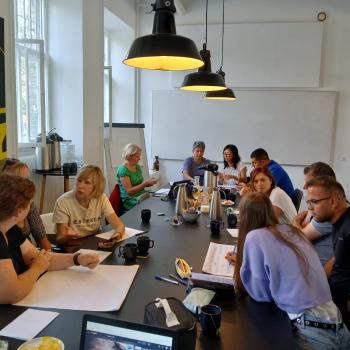
EMERGING MODELS IN EDUCATION: FLEXIBILITY, INNOVATION, COLLABORATION
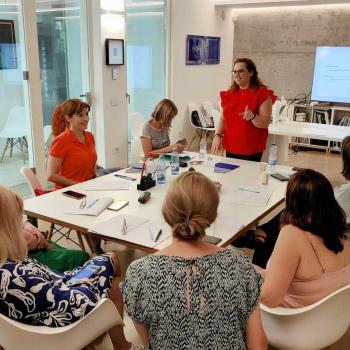
“MENTORING SKILLS FOR CAREER DEVELOPMENT”
